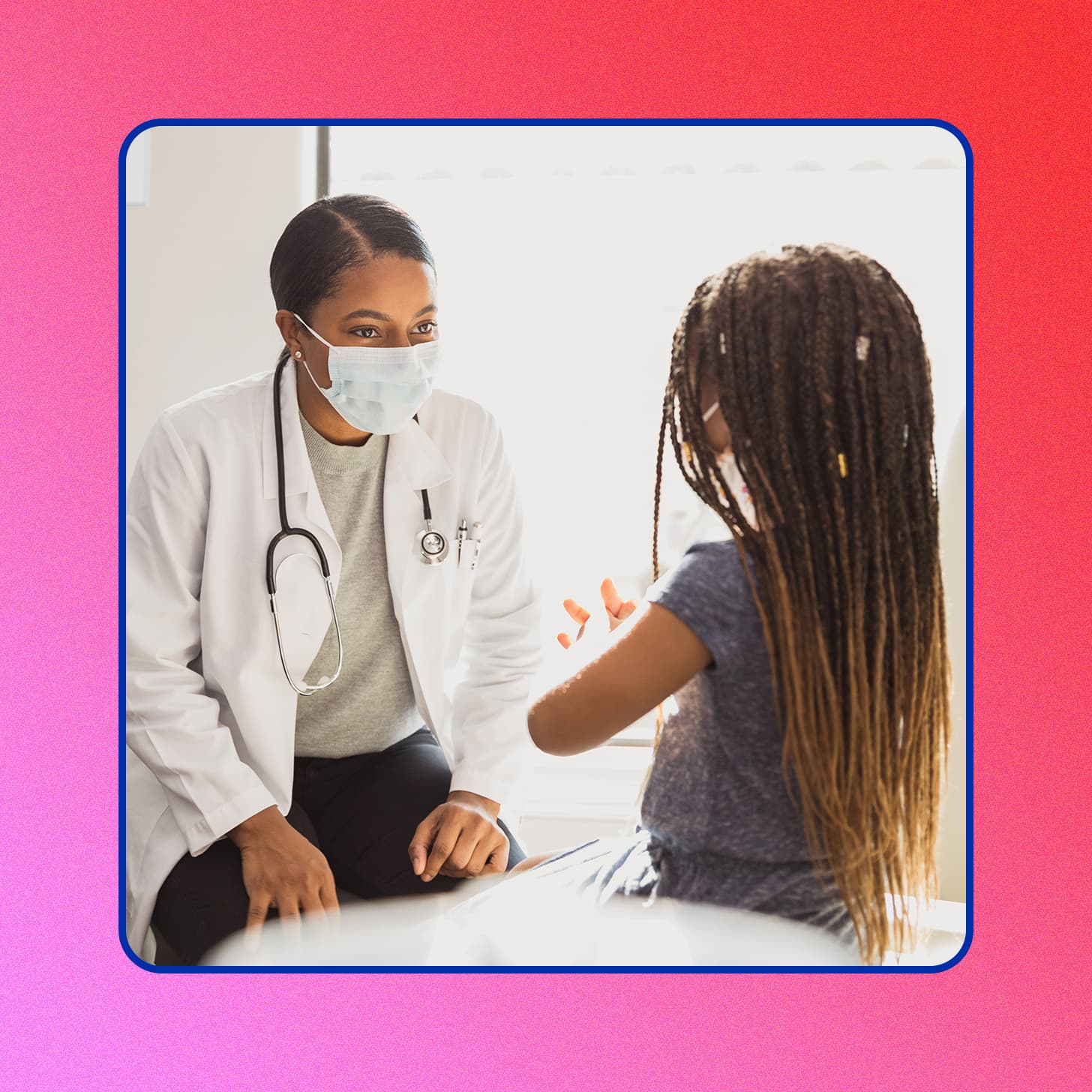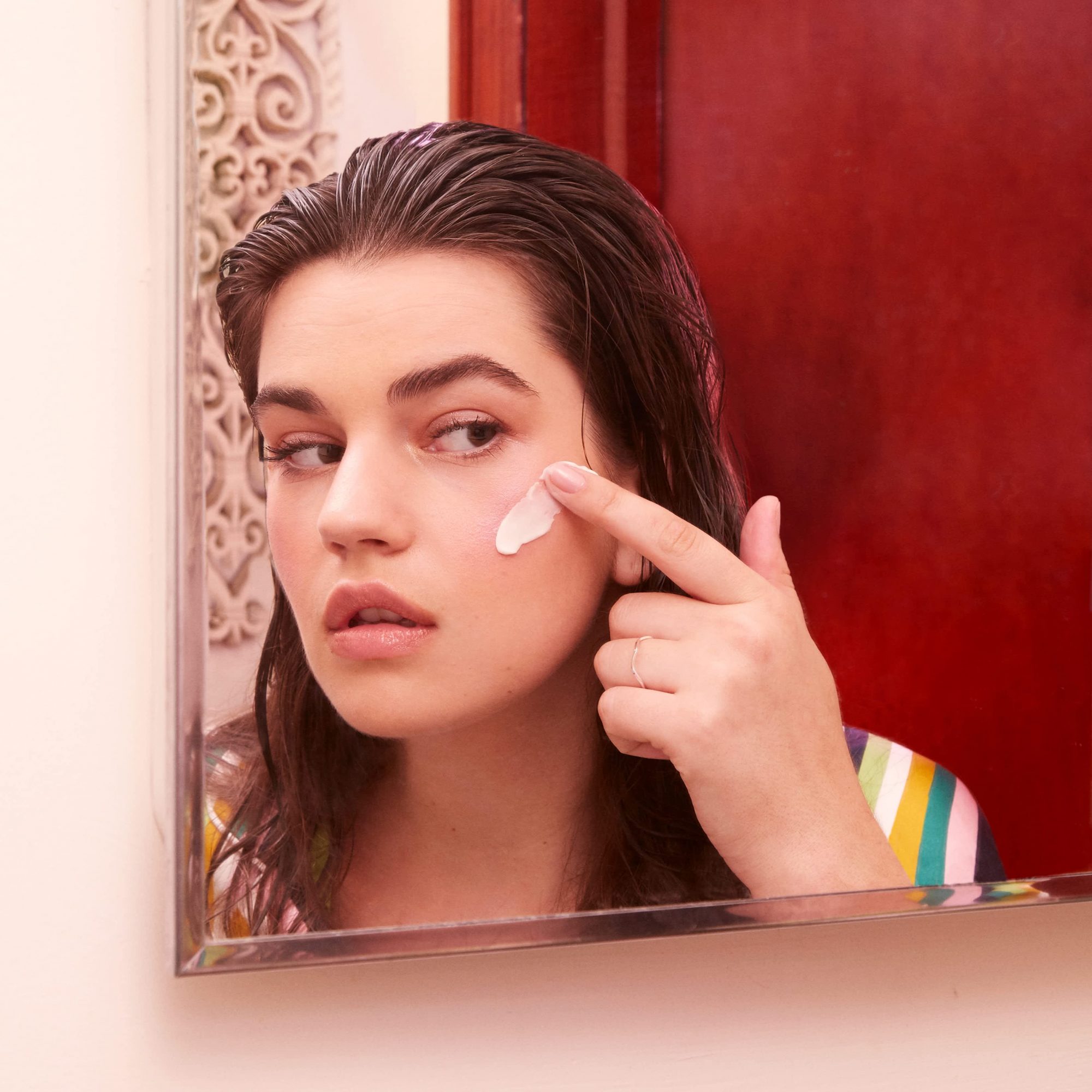
- POPSUGAR Australia
- Beauty
- Why Are People Getting Acne So Much Earlier?
Why Are People Getting Acne So Much Earlier?

Getting your first zit is one of those rites of passage that no one looks forward to, and these days, having to deal with that milestone moment is happening earlier than ever. In fact, dermatologists have noted more and more cases of acne from younger patients at prepubescent ages in the last few years.
One of the main culprits behind younger people seeing spots sooner these days is because they’re entering puberty earlier. “We don’t quite understand why, but kids are going through puberty at significantly younger ages now compared to 30 years ago,” says Joshua Zeichner, MD, associate professor of dermatology at Mount Sinai Hospital in New York City. “There are girls getting their periods at the age of 9. This likely has to do with evolutionary changes over time. In addition to the younger onset of puberty, we are seeing acne much earlier as well.”
According to a 2019 study in the journal JAMA Pediatrics, boys are entering puberty earlier due to a link in higher body mass index (BMI), and research from The Journal of Pediatrics found that being overweight and obese in childhood is also associated with the onset of puberty at a younger age in girls.
“It is most likely multifactorial,” says Rebecca Marcus, MD, board-certified dermatologist and founder of Maei MD. “An increase in the incidence of childhood obesity plays a role, as estrogen is stored in fat, and therefore an obese child may have higher-than-average levels of adult hormones. Chemicals in plastics, endocrine disruptors in foods and cosmetics, and other environmental toxins may play a role. Hormones added to milk and meat, as well as genetically modified foods, all contribute to changes in the way our bodies grow and develop.”
It’s not uncommon for acne to sprout as a result of hormonal fluctuations. During puberty, for example, this is when the body tends to produce adult levels of hormones. “These same hormones activate oil glands, which causes oil production for the first time and leads to pimples,” Dr Zeichner says. “Acne starts to develop in kids as they enter the first stage of puberty, known as adrenarche. Here, the adrenal glands mature and the body experiences hormone surges that will remain at those high levels for the rest of your adult life.”
When young adults start breaking out when they hit puberty, they experience a typical type of acne. They develop blackheads and whiteheads in the T-zone (forehead, nose, and chin) because this is where the highest concentration of oil glands is. “As puberty continues, the skin becomes oily and the environment becomes hospitable for acne, causing bacteria to grow to higher levels,” Dr Zeichner says. “As this happens, kids start to develop the red, angry pimples as well.”
“Although acne is extremely common in teens, kids who develop acne at a younger age may be the only one of their peers experiencing acne, and this can be emotionally distressing.”
The pandemic has also contributed to higher rates of acne seen across the board. “Not only has it brought emotional stress, which is known to cause breakouts, but also the masks themselves are problematic for the skin,” Dr Zeichner says. With many mask mandates in place at schools around the country for the better part of the last two years, this could also be a contributor to higher acne cases. “The face did not evolve to be covered tightly with an N95, which traps oil, dirt, sweat, and exhaled breath, creating a humid environment that promotes acne and other facial conditions like rosacea.”
To address the growing concern of children experiencing acne at a younger age, the American Academy of Pediatrics published guidelines in Pediatrics on the diagnosis and treatment of pediatric acne, with treatment suggested by age and the severity of acne, encompassing over-the-counter products, topical benzoyl peroxide, topical retinoids, topical antibiotics, oral antibiotics, hormonal therapy, and isotretinoin.
The best thing parents can do to help is to teach their children to adapt and stick to a healthy skin-care routine. “Consistency is key, and kids and teens are not necessarily known for their ability to prioritize a skin-care routine,” Dr Marcus says. “To the extent possible, parents should do what they can to encourage their children to cleanse and stick with the routine prescribed by their doctor.”
Start out by encouraging them to wash their face twice daily with a facial cleanser to remove dirt, bacteria, and excess oil that can clog pores. “This is a habit that kids need to develop, so it may be necessary to frequently remind your child of the importance of cleansing their skin twice daily, or potentially even more if they exercise and participate in sports during the day,” Dr Marcus says. “I like to start kids with a simple skin-care routine and possibly a retinoid if they can tolerate it. Although treatment varies by individual and their skin type and level of sensitivity, usually we will start with a minimal routine and ramp it up as needed until the acne is under control.”
Dr Zeichner recommends using a cleanser with salicylic acid. “Beta hydroxy acid removes excess oil and dead cells from the skin to keep the pores clear,” he says. “Remember that these are treatment products in addition to cleansers. Let them sit and lather on the skin while you sing the alphabet before rinsing off. This gives enough contact time for the salicylic acid to penetrate into the pores and exert its job. In little kids, there aren’t as many red, angry pimples, so salicylic acid or adapalene are the treatments of choice. The biggest challenge in little kids is getting them to use the products.”
To keep breakouts at bay, it’s also important for children to avoid picking at their face, which will do more harm than good. Wearing a soiled mask is a bad idea. And trying to relax – such as through yoga or meditation – can also help minimize the effects of stress on the skin.
Learning healthy habits and getting breakouts under control ASAP is crucial for their skin in the future. “Developing acne at a younger age has been shown to be associated with worse acne and more persistent acne later in life,” Dr Zeichner says. “Acne is ultimately caused by your genetics, and if there is a family history of acne in Mom or Dad, then the kids are more likely to develop it.”
Acne is much more than skin deep, since experiencing acne at a young age can take its emotional toll, leaving lasting effects on their self-esteem. “At any age, acne can cause embarrassment, social isolation, and depression,” Dr Marcus says. “Although acne is extremely common in teens, kids who develop acne at a younger age may be the only one of their peers experiencing acne, and this can be emotionally distressing.”
Physical scars are permanent, so if you notice scarring, then it is important to get professional help as soon as possible. “Acne scars are preventable with early, effective intervention,” Dr Zeichner says. “If over-the-counter products or recommendations from the paediatrician are not working, visit a dermatologist for help. Do not wait.”


